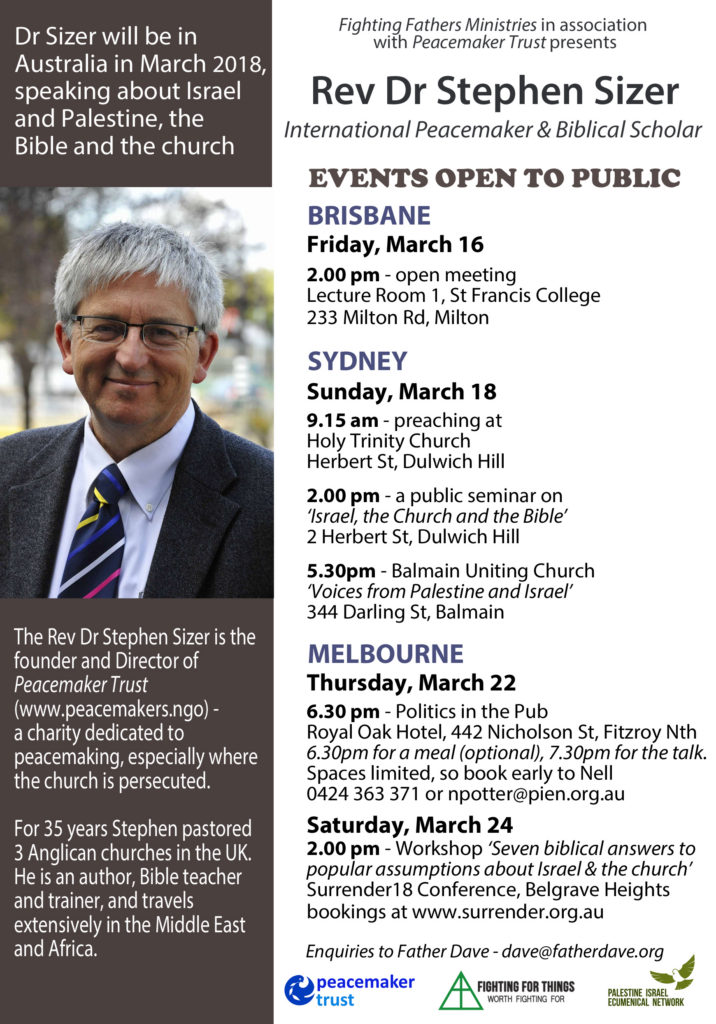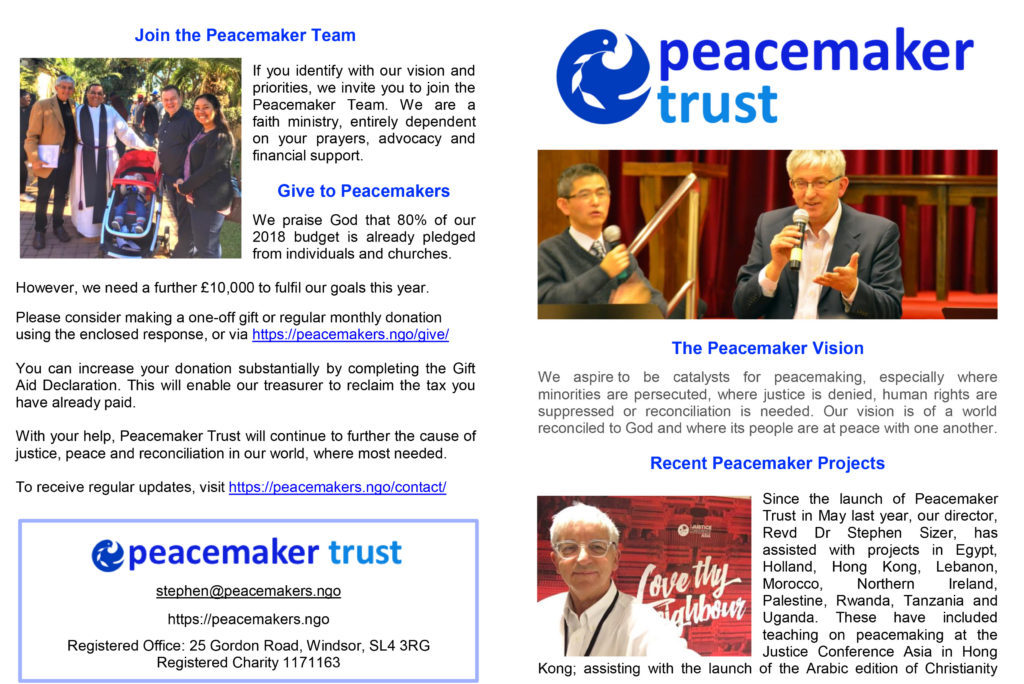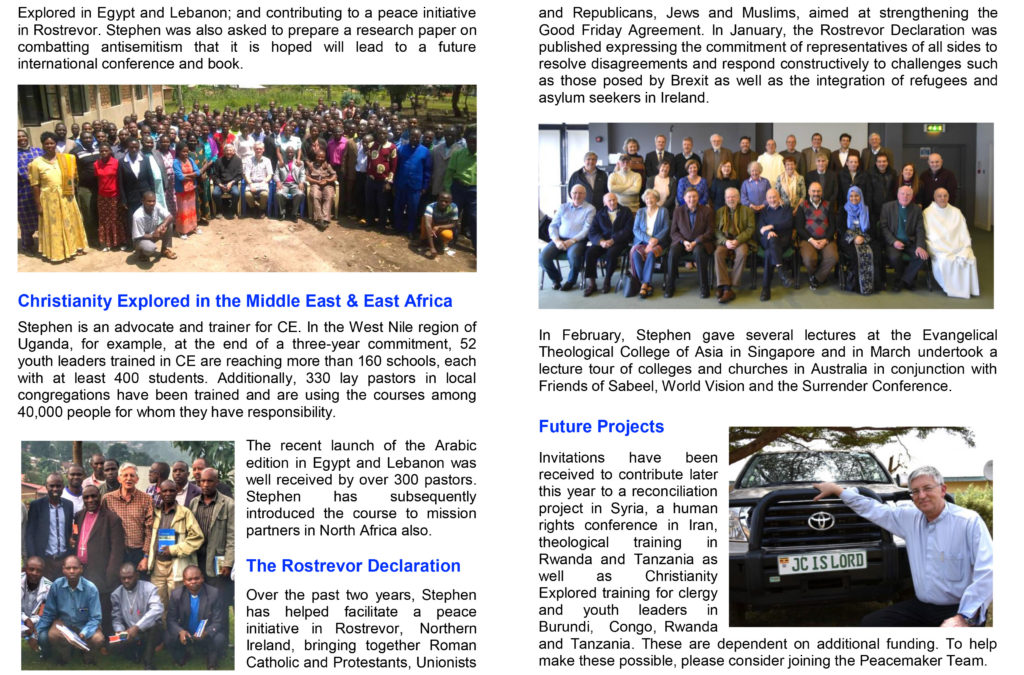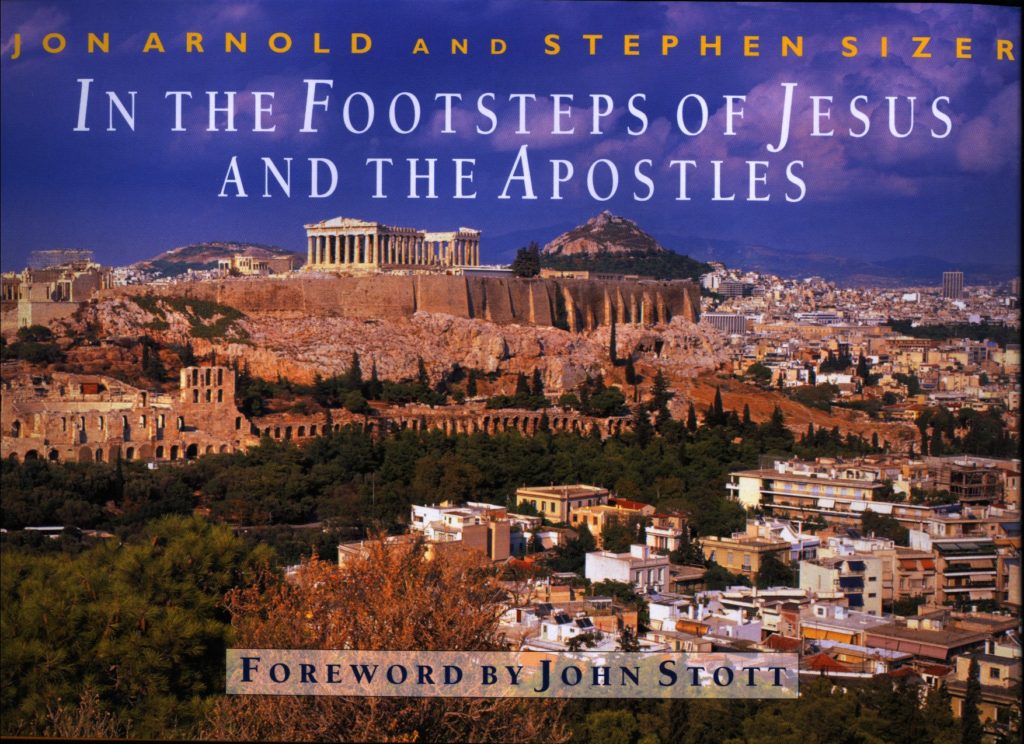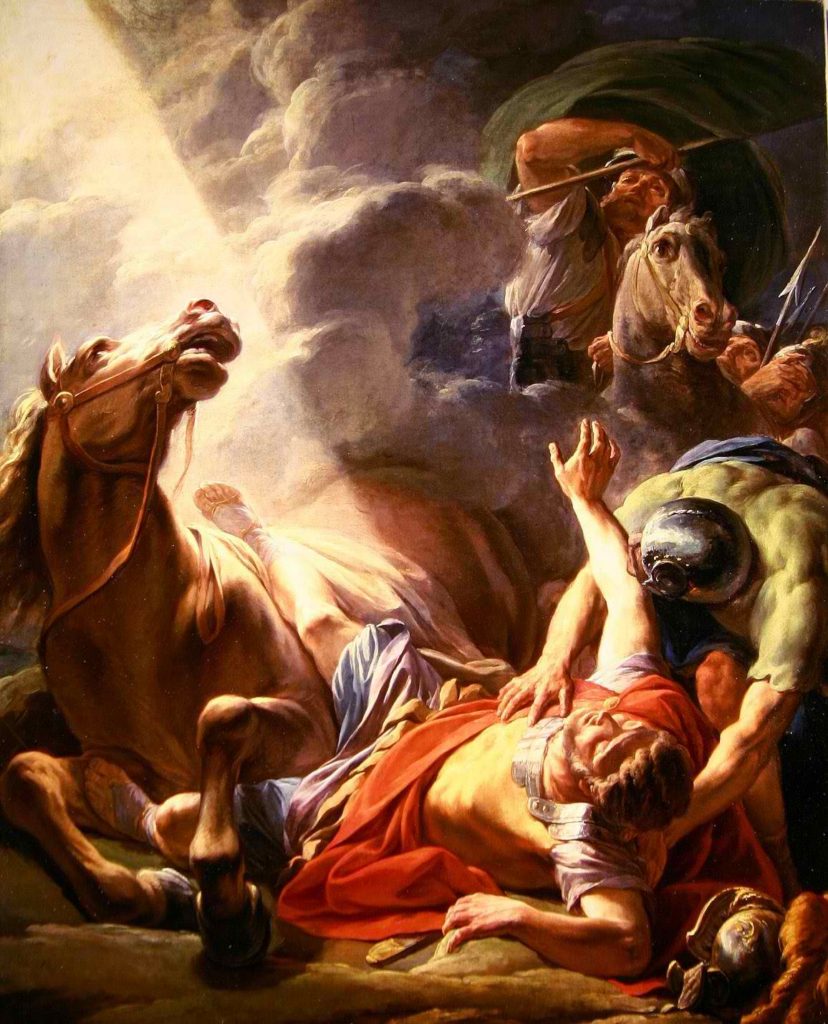 Frank Sinatra’s song, “I did it my way”, would have made a good epitaph on my early life. I was brought up in a Christian home, believed in God and we went to church on Sundays. I thought Jesus was a good man sent from God but Easter didn’t make sense. If only Jesus had not died, he could have done so much more good in the world. I had a Bible but it had small print and was written in old English so I rarely attempted to read it. When I left home and went to work in London for the Civil Service, I never got round to finding a church. I tried to live by the Ten Commandments and hoped that when I died, in the scales, my good would outweigh my bad. I remember praying on the way to work thanking God for the beauty of creation but he always seemed distant, like a sepia photo of my great-grandparent, we were related but I didn’t know them. Then I had the opportunity to go to University at Sussex. I met two people, Trent and Ed, who talked about Jesus as a personal friend. They explained that God loved me and created me to know and enjoy him for ever. They told me what I already know – that I fell short of God’s standards and although I may not be as bad as I could be, I could never be as good as I should be. My sin cut me off from God and because the wages of sin is death. The good news is that God sent his son, the Lord Jesus Christ, to die in our place, to forgive our sins and give us the gift of eternal life. They showed me that the Bible promised, if I trusted in Jesus as my Lord and Saviour I would experience God’s love and forgiveness.
Frank Sinatra’s song, “I did it my way”, would have made a good epitaph on my early life. I was brought up in a Christian home, believed in God and we went to church on Sundays. I thought Jesus was a good man sent from God but Easter didn’t make sense. If only Jesus had not died, he could have done so much more good in the world. I had a Bible but it had small print and was written in old English so I rarely attempted to read it. When I left home and went to work in London for the Civil Service, I never got round to finding a church. I tried to live by the Ten Commandments and hoped that when I died, in the scales, my good would outweigh my bad. I remember praying on the way to work thanking God for the beauty of creation but he always seemed distant, like a sepia photo of my great-grandparent, we were related but I didn’t know them. Then I had the opportunity to go to University at Sussex. I met two people, Trent and Ed, who talked about Jesus as a personal friend. They explained that God loved me and created me to know and enjoy him for ever. They told me what I already know – that I fell short of God’s standards and although I may not be as bad as I could be, I could never be as good as I should be. My sin cut me off from God and because the wages of sin is death. The good news is that God sent his son, the Lord Jesus Christ, to die in our place, to forgive our sins and give us the gift of eternal life. They showed me that the Bible promised, if I trusted in Jesus as my Lord and Saviour I would experience God’s love and forgiveness.
Category Archives: Theology
The Australia Tour
Blessed are the Peacemakers
Join the Peacemaker Team – Peacemakers Donation Response Form
To receive regular updates visit our website
What Are We to Make of Jesus Christ?
 “Now the story of Christ is simply a true myth: a myth working on us in the same way as the others, but with the tremendous difference that it really happened.” — C. S. Lewis
“Now the story of Christ is simply a true myth: a myth working on us in the same way as the others, but with the tremendous difference that it really happened.” — C. S. Lewis
‘What are we to make of Jesus Christ?’ This is a question, which has, in a sense, a frantically comic side. For the real question is not what are we to make of Christ, but what is He to make of us? The picture of a fly sitting deciding what it is going to make of an elephant has comic elements about it. But perhaps the questioner meant what are we to make of Him in the sense of ‘How are we to solve the historical problem set us by the recorded sayings and acts of this Man?’ This problem is to reconcile two things. On the one hand you have got the almost generally admitted depth and sanity of His moral teaching, which is not very seriously questioned, even by those who are opposed to Christianity. In fact, I find when I am arguing with very anti-God people that they rather make a point of saying, ‘I am entirely in favour of the moral teaching of Christianity’ — and there seems to be a general agreement that in the teaching of this Man and of His immediate followers, moral truth is exhibited at its purest and best. It is not sloppy idealism; it is full of wisdom and shrewdness. The whole thing is realistic, fresh to the highest degree, the product of a sane mind. That is one phenomenon.
The Call of Jesus “Follow me” : John 1:43-51
 When you were a child, who or what did you want to be when you grew up? As a child, I dreaded the Christmas visits to aunts and uncles. Every year they would ask me the same question: “What do you want to be when you grow up?” I hadn’t a clue. In many societies, you are expected to join the family trade or you may become an apprentice to a master craftsman. That’s how my grandfather Lewis learnt his trade. My great-grandmother paid a local carpenter to take Lewis on as a young boy and teach him carpentry skills. I still have his articles of indenture. My grandfather became his pupil, a learner. Then when he too became a master craftsman, he took on my father who became his disciple. I broke the family tradition although I’m pretty good at putting Ikea furniture together. The greatest tragedy in life is not death, but life without meaning, without purpose. Many people go through life without ever discovering God’s purpose for their lives. We are not an accident. We were created for a purpose. We were made to have meaning.
When you were a child, who or what did you want to be when you grew up? As a child, I dreaded the Christmas visits to aunts and uncles. Every year they would ask me the same question: “What do you want to be when you grow up?” I hadn’t a clue. In many societies, you are expected to join the family trade or you may become an apprentice to a master craftsman. That’s how my grandfather Lewis learnt his trade. My great-grandmother paid a local carpenter to take Lewis on as a young boy and teach him carpentry skills. I still have his articles of indenture. My grandfather became his pupil, a learner. Then when he too became a master craftsman, he took on my father who became his disciple. I broke the family tradition although I’m pretty good at putting Ikea furniture together. The greatest tragedy in life is not death, but life without meaning, without purpose. Many people go through life without ever discovering God’s purpose for their lives. We are not an accident. We were created for a purpose. We were made to have meaning.
Glory in the Ordinary: Luke 2:15-21
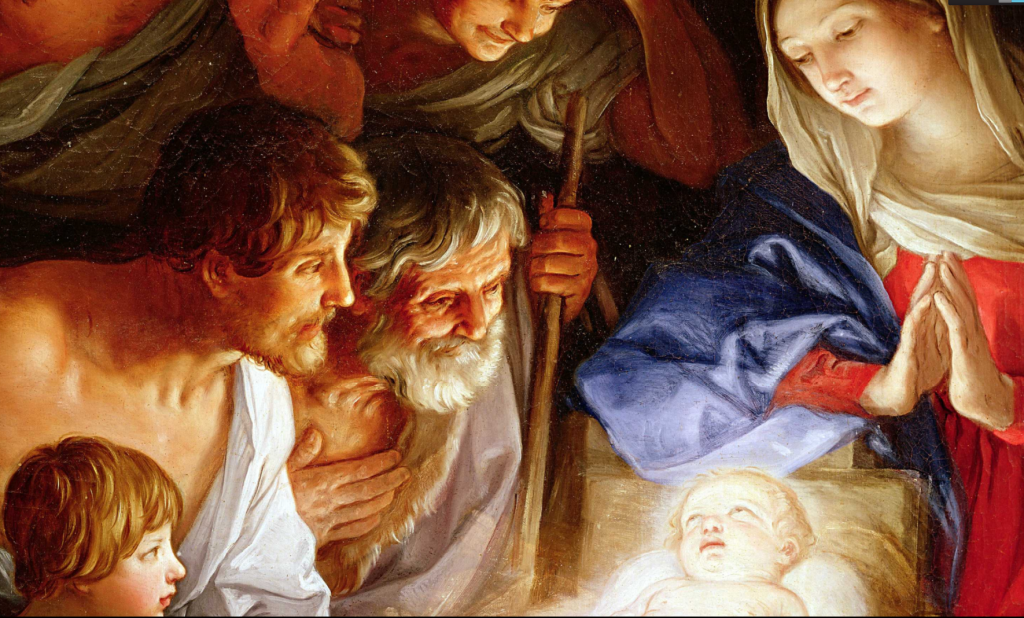 “When the angels had left them and gone into heaven, the shepherds said to one another, “Let’s go to Bethlehem and see this thing that has happened, which the Lord has told us about.” 16 So they hurried off and found Mary and Joseph, and the baby, who was lying in the manger.
“When the angels had left them and gone into heaven, the shepherds said to one another, “Let’s go to Bethlehem and see this thing that has happened, which the Lord has told us about.” 16 So they hurried off and found Mary and Joseph, and the baby, who was lying in the manger.
17 When they had seen him, they spread the word concerning what had been told them about this child, 18 and all who heard it were amazed at what the shepherds said to them. 19 But Mary treasured up all these things and pondered them in her heart. 20 The shepherds returned, glorifying and praising God for all the things they had heard and seen, which were just as they had been told. 21 On the eighth day, when it was time to circumcise the child, he was named Jesus, the name the angel had given him before he was conceived.” (Luke 2:15-21)
There is one word that best describes the night the Lord Jesus was born – ordinary. The sky was ordinary. An occasional gust stirred the leaves and chilled the air. The stars were like diamonds sparkling on black velvet. Fleets of clouds floated in front of the moon. It was a beautiful night – a night worth peeking out of your bedroom window to admire – but not an unusual one. No reason to expect a surprise. Nothing to keep you awake. An ordinary night with an ordinary sky. The sheep were ordinary too. Some fat. Some scrawny. Some with barrel bellies. Some with twig legs. Common animals. No fleece made of gold. No history makers. No blue-ribbon winners. They were simply sheep – sleeping silhouettes on a hillside. And the shepherds? Peasants they were. Ancestors of today’s Bedouin. Wearing all the clothes they owned. Smelling like sheep and looking just as woolly. True they were conscientious, and hardy as well, to spend every night outside guarding their flocks. But you won’t find their staffs in a museum. You won’t find their writings in a library. No one asked for their opinion on social justice or the meaning of the Torah. They were anonymous, simple, ordinary people.
The Historical Jesus: The Evidence from Scripture and Archaeology
 I was recently invited to give a series of lectures in a dozen or so universities across Iran and dialogued with Islamic scholars in Qom. The Q&A session after each presentation was a lively affair – longer in fact than my presentations. The most frequently asked question concerned the reliability of the Bible. What did I think about Dan Brown’s book, The Da Vinci Code? Apparently more than a billion people worldwide believe the views popularized in the Da Vinci Code.
I was recently invited to give a series of lectures in a dozen or so universities across Iran and dialogued with Islamic scholars in Qom. The Q&A session after each presentation was a lively affair – longer in fact than my presentations. The most frequently asked question concerned the reliability of the Bible. What did I think about Dan Brown’s book, The Da Vinci Code? Apparently more than a billion people worldwide believe the views popularized in the Da Vinci Code.
They believe the message of the Bible has been corrupted and distorted, that Jesus is not the Son of God, but a prophet and that he did not die on the cross or rise from the dead.
They believe that in 325AD the Emperor Constantine commissioned the writing of the New Testament we now have which portrays Jesus as a divine figure. Dozens of other “gospels” were censored or destroyed. Constantine actually summoned the Council of Nicaea to end disunity caused by the Arian controversy. Arius taught that although Jesus was the Son of God, he was less than the Father. The Council was attended by around 300 bishops. The Arian Creed was soundly rejected. The Nicene Creed was accepted by 298 Bishops. 2 were against. (i.e., over 99% in favour). The Council of Nicaea recognized Jesus as “begotten not made, of the same substance (homousios) as the Father.”
In the Footsteps of Jesus and the Apostles
Introduction
Israel, Palestine, the Promised Land, the Holy Land, the very name we use says as much about us and our presuppositions and aspirations as about this inscrutable, hypnotic, exotic location. Historically the birthplace of the Judeo-Christian heritage, it is today claimed by two peoples, the Jews and Palestinians, its holy sites shared, at times uneasily, by three religions, Jewish, Christian and Moslem, often in close proximity as at the Temple Mount in Jerusalem or the tomb of Rachel in Bethlehem. Baraba Tuchman summarises some of the reasons why this place holds such fascination to so many,
More blood has been shed for Palestine than for any other spot on earth. To Protestant England it was not only, as Lord Curzon said, “the holiest space of ground on the face of the globe,” the land of the Scriptures, the land of the Crusades, the land “to which all our faces are turned when we are finally laid in our graves in the churchyard.” It was also the geographical junction between East and West, the bridge-head between three continents, the focal point in the strategy of empire…
Few countries attract so much media coverage, or arouse such intense religious feeling and political controversy. Yet it has been the same for countless generations. Why have people for millennia, longed to live here, or make a pilgrimage to this land? What is the fascination this land has over so many people around the world?
Christian Jihad: A Biblical Basis for Proactive Peacemaking
 The term Jihad tends to be associated with Islam – indeed for some, the two words are synonymous. But the fact is violent extremism is found in all religions. I could easily quote Islamic or Jewish leaders who justify the use of violence in the name of God, but I will give you one example from a well-known Christian. Following the tragedy of 9/11 and destruction of the World Trade Centre in New York, multi-bestselling author and Christian journalist Anne Coulter, wrote,
The term Jihad tends to be associated with Islam – indeed for some, the two words are synonymous. But the fact is violent extremism is found in all religions. I could easily quote Islamic or Jewish leaders who justify the use of violence in the name of God, but I will give you one example from a well-known Christian. Following the tragedy of 9/11 and destruction of the World Trade Centre in New York, multi-bestselling author and Christian journalist Anne Coulter, wrote,
“We don’t need long investigations of the forensic evidence to determine with scientific accuracy the person or persons who ordered this specific attack. We don’t need an “international coalition.” We don’t need a study on “terrorism.” … We know who the homicidal maniacs are. They are the ones cheering and dancing right now. We should invade their countries, kill their leaders and convert them to Christianity. We weren’t punctilious about locating and punishing only Hitler and his top officers. We carpet-bombed German cities; we killed civilians. That’s war. And this is war.”[1]
In my opinion, too many evangelical leaders have also been quick to endorse Mr Donald Trump’s threat to “totally destroy North Korea.” Thankfully, many Christians in the USA as well as Europe and Asia repudiate views such as these as a gross distortion of Christianity and grave insult to the teachings of Jesus the Christ.
Chosen? Reading the Bible amid the Israeli-Palestinian Conflict by Walter Brueggemann: A Review
 In his short but passionate little book, Chosen? Walter Brueggemann addresses some of the important questions regarding God’s purposes for Israel and the Church. For example, are contemporary Israeli citizens the descendants of the Israelites in the Bible whom God called chosen? Was the promise of land to Abraham permanent and irrevocable? What about others living in the promised land? Who are the Zionists, and what do they believe? The subtitle of the book tells us where he intends to look for answers, “Reading the Bible amid the Israeli-Palestinian Conflict.” His publisher, Westminster John Knox, promises,
In his short but passionate little book, Chosen? Walter Brueggemann addresses some of the important questions regarding God’s purposes for Israel and the Church. For example, are contemporary Israeli citizens the descendants of the Israelites in the Bible whom God called chosen? Was the promise of land to Abraham permanent and irrevocable? What about others living in the promised land? Who are the Zionists, and what do they believe? The subtitle of the book tells us where he intends to look for answers, “Reading the Bible amid the Israeli-Palestinian Conflict.” His publisher, Westminster John Knox, promises,
“The reader will get answers to their key questions about how to understand God’s promises to the biblical people often called Israel and the conflict between Israel and Palestine today.”
Chosen? comprises 59 pages of scripture commentary in four short chapters, a Q&A with the author, a glossary and 20-page study guide to facilitate group discussion around each of the chapters. The four chapters are:
- Reading the Bible amid the Israeli-Palestinian Conflict
- God’s Chosen People, Claim and Problem
- Holy Land?
- Zionism and Israel
The book also contains very helpful guidelines for respectful dialogue first published by the Presbyterian General Assembly in 1992. Significantly, the title includes a question mark. I added a question mark to the titles of two of my own books: Christian Zionism: Roadmap to Armageddon? and Zion’s Christian Soldiers? The Bible, Israel and the Church.[i] Walter is recognising, as I did, that views differ on whether the Jews are God’s chosen people, even though, unlike me, he personally concludes that they are.

